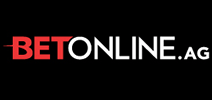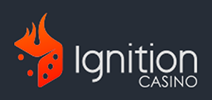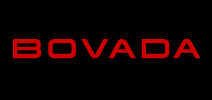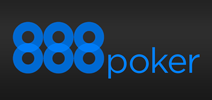Online Gaming Commissions
Kahnawake Gaming Commission
The Kahnawake Gaming Commission, often referred to as simply KGC, is on tribal land just outside of Montreal, Quebec. Founded in 1996, the KGC was one of the first online gaming commissions. The KGC was able to establish itself as an early gaming commission due to its sovereign status and the placement of a large internet backbone that runs under Mohawk Tribal Land. The KGC was not much more than an internet service provider in its early days. It licensed virtually any gaming website that was willing to pay for a license. The KGC has tried in recent years to become more respectable but it is often haunted by its past. KGC licenses gaming sites that accept U.S. players. This includes Intertops.
SPS Approved Safest Online Poker Sites
Two online poker cheating incidents are among the problems that the KGC had in its past. The first cheating scandal involved Ultimate Bet. Insiders used a development player account that exposed player’s hole cards. While this account did not sit at the table, it was used to observe games and this information was passed onto the cheating player through private chat programs. This cheating went on for an estimated six years. Absolute Poker had a similar cheating scandal using the same type of player account that could see player’s hole cards. The KGC fined Absolute Poker $500,000 for their lack of security.
While unrelated at the time of the cheating scandals, Absolute Poker and Ultimate Bet eventually merged. The Ultimate Bet software was dropped and the Absolute Poker software was used for both brands. The combined rooms were branded as Cereus.
These poker rooms were charged with illegal online gambling and bank fraud by the U.S. Department of Justice on April 15, 2011. This date is referred to as Black Friday by the online poker community. A lack of cash was exposed and the two sites imploded. Years of mismanagement was brought to the surface. There was a shortfall of at least $40 million. Absolute Poker and Ultimate Bet closed without paying most players. This was all under the watch of the KGC. Many online poker players have little trust in KGC due to their licensing of these rogue rooms.
Malta Lottery and Gaming Authority
The Malta Lottery and Gaming Authority (LGA) was established in 2001. Malta is a member of the European Union. This makes a Maltese remote gaming license attractive to brands that specialize in the European market. That is because EU law allows for players within the union to pay the most favorable tax rate on their income between the country where the income is earned and the country where a person resides. Several European countries have high tax rates on gambling winnings. The LGA license allows players to pay no taxes on gambling winnings if their home country actually taxes gambling winnings.
While this situation has been helpful for tax purposes, the LGA has been involved in several licensing failures. The most notable is probably the implosion of BetonBet, a sister site of Eurolinx. BetonBet was a U.S. facing gaming site that included poker, sports and casino games. It was acquired by Eurolinx, who was not licensed by the LGA. There was an obvious relationship between Eurolinx management, BetonBet and their licensing agreement with the LGA. A top member of Eurolinx management turned out to have a past that would have not gotten him licensed in most jurisdictions. Eurolinx and BetonBet failed and never paid players.
Stryyke was another LGA member that failed. The poker room was on the Ongame Network and also offered a sports book. The company moved to the Cake Poker Network but they never paid players and disappeared.
Purple Lounge was the most recent well known LGA failure. Purple Lounge was a respectable brand for years that offered Microgaming casino and poker games. The poker room moved to Entraction. Within a few months after this move, the gaming group closed without notice. They failed to pay players. The parent company of Purple Lounge was Media Corp. The parent company refused to take responsibility and players never got paid. The LGA did nothing but revoke their license. The practice of revoking licenses and claiming no responsibly has become a habit for the LGA.
The Everleaf Gaming Network still operates but is in its own scandal. Everleaf Gaming is a poker network that accepted U.S. players well after the UIGEA passed in the U.S. in 2006. The poker room abruptly banned U.S. players in February 2012. U.S. players have yet to get paid. Players outside the U.S. continue to play but get slow paid, often waiting months for an ewallet cashout that takes a day through most brands. The LGA still licenses Everleaf Gaming even though there are obvious liquidity issues.
It is safe to assume that the LGA is simply a rubber stamp remote gaming commission. Anyone with a check that is big enough will get a license. The LGA does nothing to make sure that their licensed operators are solvent, as exposed by the constant failures of their sites. There are many well respected brands licensed in Malta, but it cannot be assumed that the LGA will do anything if there is a site bankruptcy.
Antigua
Antigua may be the most well respected remote gaming licensing authority in the world. The tiny island nation created the industry to compliment their already thriving tourism business that includes brick and mortar casinos. Many well respected sports betting companies are licensed in Antigua. The nation also allows their .ag domains to be licensed by U.S. facing gaming companies. This prevents a domain seizure by U.S. authorities.
Antigua takes their online gaming seriously. The country has less than 90,000 residents but was able to defeat the United States through its World Trade Organization complaint. After several wins by Antigua, and subsequent losing appeals by the United States, Antigua prevailed over the super power. Antigua alleged that U.S. law prevented them from entering the U.S. online gaming market legally and that this action violated trade agreements that the U.S. made with Antigua. The U.S. has still refused to pay Antigua damages and it is allowed to violate U.S. trademarks in the amount of $21 million annually.
Isle of Man
Isle of Man is a small island nation of less than 90,000 people. Isle of Man is a known tax haven for Europeans. It is also home to the two largest online poker rooms in the world. These two poker rooms are PokerStars and Full Tilt Poker. The success of PokerStars has added a tremendous amount to the reputation of the nation and its remote gaming industry.
United Kingdom
The United Kingdom is one of the most well known and respected remote gaming commissions in the world. The UK was the first major economic powers to license remote gaming sites. This occurred in 2007. Few brands register with the UK Gaming Commission simply due to the fact that other EU countries offer lower licensing fees and a more appealing tax structure. The most notable remote U.S. brand licensed in the UK is probably the World Series of Poker. This brand is only available to UK players.
Curacao Internet Gaming Association
The Curacao Internet Gaming Association, often referred to as CIGA, licenses many remote gaming sites. The most notable is Pinnacle Sports. Wincake is another company licensed there.
CIGA did have several major licensees fail. Eurolinx was a major Microgaming licensee that operated under the watch of CIGA. Eurolinx failed and never repaid players. Lock Poker failed after running a scam for multiple years. It didn’t pay anybody. Muchos Poker was also a stiff under the Curacao eGaming watch,
Costa Rica
Contrary to what some companies want you to believe, there is no such thing as a Costa Rican remote gaming license. Costa Rica simply gives online gambling companies a business license and gives them regulations that pertain to how they must do business in Costa Rica. There should be no expectation of assistance should a Costa Rican company that is not licensed in another country fails. Many U.S. facing sports books are located in Costa Rica.
Panama
Panama is a step above Costa Rica in terms of protection, but is still not a major player in remote gaming. Panama has banking laws that appeal to online gaming companies that service U.S. players. There should be little expected from the Panamanian regulators if an issue should arise.
Nevada Gaming Control Board
The Nevada Gaming Control Board is the newest interactive gaming licensing body. The interactive gaming regulations were established in December 2011 and only include online poker. Remote sports betting is licensed through a different process. The first license was approved in June 2012. The first two licensees in Nevada were International Game Technology and Bally Technologies. More than 30 companies have applied for a Nevada Interactive Gaming License. While Nevada is a tiny market that will only allow players within its state’s border play, the hope is that Nevada will be the gateway to the large U.S. online poker market. Online poker is not yet live in Nevada, although remote sports betting has been live since 2010.
New Jersey Division of Gaming Enforcement
The New Jersey Division of Gaming Enforcement was able to turn a newly passed law into active online poker and casino sites in less than one year. It licenses brick and mortar Atlantic City casinos as operators and allows these companies to partner with software providers.
Delaware Lottery
The Delaware Lottery is the third U.S. state that offers regulated online gaming. This is much different than Nevada and New Jersey where commercial casinos operate interactive gaming services. Online poker and casino games are legal in Delaware. 888 won the contract to provide the platform for the games. Caesars Entertainment supplies additional content. The skins are Dover Downs, Delaware Park and Harrington Raceway. These are all state racetracks that offer lottery casinos.




